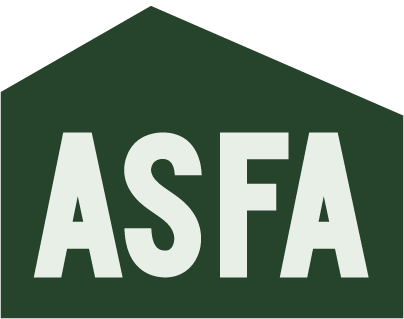
Mobilization
ASFA'S Mobilization Mission
Our mission is to support the Concordia community by providing funding and assistance to community members advocating for causes that will positively impact the lives of ASFA members. Projects we’ve supported in the past include the Climate Strike, Strike Against Unpaid Internships, Opposing Sexual Violence, Opposition to Bill 21, and Actions to Honour Missing and Murdered Indigenous Women and Girls Two-Spirited People. Help us add to our list by reaching out to ASFA for support on your next social justice campaign.
To get support on your next social justice project, email mobilization@asfa.ca.
Student Strike
WHAT IS A STUDENT STRIKE?
A strike is the strongest political tool that students have. Student strikes are a protest where students collectively shut down their schools by blocking access to halt all academic activities (attending lectures, handing in assignments, etc.). The goal of a strike is to pressure their school and their government to meet student demands.
+ read more
To elevate climate strikes to create real change, we need to become organized and plan departmental strikes rather than walkouts. Where walkouts are an individual decision, strikes are a collective action. You’re no longer leaving class as an individual but working with your classmates to cancel the course in protest of inaction on the climate crisis. The collective nature of strikes is why Quebec has been able to bring out hundreds of thousands of students on strike days. Quebec organizes and uses student power to cancel classes in striking departments. This allows students who could not risk leaving class to attend strikes and is an essential act of solidarity with your classmates.
Strikes can be as long or short as you want. Your team should start with a one-day strike, which escalates to 3 days or one week. The ultimate power of the strike is in showing the administration and the government that we can go on a general unlimited strike if they do not meet our demands.
WHAT IS A GENERAL UNLIMITED STRIKE?
A strike is “general” when all or most school departments are on strike and work in coordination with other schools. It becomes “unlimited” when students refuse to resume the semester until their demands are met. It is essential to specify that the concept of striking is not limited to university students.
-
Assessing Membership (find your team)
Accessing your membership is important in building your team to push your campaign forward. You can assess members on a 1-4 scale:
1. Mobilizers: These people are dedicated to the MA, attend general assemblies, volunteer their time, and stay involved through social and academic events.
2. Inactive supporters: These people talk about getting more involved but haven’t yet. They come to events periodically and feel optimistic about the MA.
3. Neutral: These people don't have much opinion on the MA. They might attend social events for the free beer but aren’t actively involved in MA activities.
4. Unsupportive: These people don’t participate in the MA and don’t want to participate in events or campaigns.
Your core team should be made up of mobilizers. The goal of mobilizers will be to engage inactive supporters and neutral members. A successful campaign moves as many people as possible into the mobilizer category through productive meetings, fulfilling volunteer opportunities, and building a positive community. -
Keeping mobilization efforts fun and action-oriented while giving members real responsibilities is important for maintaining participation and interest. Here are some helpful tips:
- Make sure meetings start and end on time
- Choose shorter and more frequent meetings
- Have a clear focus and a decision that needs to be made to take action.
- Remember, meetings are to decide on something the people in the meeting are prepared to act on.
- Plan social time for after meetings to build community and morale. When a team doesn’t feel connected outside of their work, they won't be willing to put in the time to make the significant changes you’re organizing toward.
Find places to meet on and around Concordia's campuses here. -
Facilitator: This person plans the agenda and runs the meeting. The facilitator can be alternated to avoid power dynamics.
Minute keeper: This person records the decisions being made in the meeting and the next steps for the group. You can view a template for effective minute keeping here.
Timekeeper: This person lets the facilitator know when a discussion is going on longer than the time set in the agenda and keeps things on track.
Mood watcher: This person keeps an eye out for hurt feelings and points out if marginalized voices are being spoken over in the meeting. The mood watcher creates space for members to express how they’re feeling.
Coalition Building
WHAT IS COALITION-BUILDING?
Coalitions aim to achieve things we cannot achieve individually. In student organizing, coalitions between different MAs, campus groups, or student groups from other campuses are important to attain bold goals. The size of your coalition depends on your goals, strategy, and campaign size.
+ read more
HOW DO I BUILD AN EFFECTIVE COALITION?
1. Brainstorm: Start by holding a coalition brainstorming meeting, where members can discuss who else on campus might be running similar campaigns or have similar goals. Ask members about the other groups they’re involved in.
2. Messaging: Before reaching out to potential allies, think about what specific messaging would get them on board and what kind of questions they might have.
3. Plan a meeting: Next, invite potential coalition members to a meeting. It could be helpful to set up a time and place far in advance to give other groups something solid to commit to. If someone cannot attend, let them know they’re still welcome to the next meeting. Send them meeting minutes and the information to participate in the next meeting.
4. Identify mutual goals: For the first meeting, lead, but don’t dominate. Discuss the goals and interests of different coalition members. What changes do you want to see on campus? In Montreal? Quebec? Canada? It would help if you came out of this meeting with a clear understanding of one another's goals and whether or not you will be able to work together moving forward. Some groups may not be as helpful as you expected, and some may be more helpful.
5. Go to bat for them: Coalitions are built on mutual support. If you expect other groups to mobilize for you, you have to be willing to rally for them. This is important or establishing a lasting reciprocal relationship.
HOW TO KEEP MEMBERS ENGAGED?
The most effective way to keep members engaged is to make them feel important and needed. Some ways to do that are:
+ read more
1. Remind members of any special skills or expertise and how that skill is needed.
2. Give people options. Maybe someone isn’t down to canvas but is willing to make phone calls or posters.
3. Don’t overload and overwhelm volunteers
4. Don't just give volunteers tasks. Demonstrate what you want them to do, ex. Practice a canvassing script or class talk with them.
5. Be clear and honest about the time commitment needed from them and respect the number of times volunteers have told you they can put in.
6. Provide food and drinks when possible and make volunteers feel welcome and supported in organizing spaces.
CANVASSING
A canvassing script, make sure your script includes:
+ read more
1. State the problem: Frame the issue, and why it should matter to the person you’re talking to
2. Give your solution: What do you want, who do you want it from, and why is it important? Ex. Divest Concordia wanted the administration to exchange fossil fuel investments for socially responsible investments.
3. Drive urgency: A lot is going on in the world. Why should they support your campaign right now?
4. Ask them to take action: What action do you want the person you’re canvassing to take? Make sure you have clear next steps on how they can support you. Consider having tiered measures. There might be people willing to sign a petition or make a small donation but not willing to come to an event or meeting. Decide what your group needs from people and ask for it.
Provide an FAQ and any relevant information or positions about your group.
Provide flyers or brochures to hand out to passersby. If you have the budget for it, consider ordering buttons or stickers to hand out.
TABLING
Tabling is when you set up a table in a space with high foot traffic and stop passers-by from talking to them about your campaign. Below are some tips on how to table effectively:
+ read more
- Choose somewhere on campus with a lot of foot traffic. You can find a list of where to table on campus here
- Make it look good. Your group's banners or posters will make who you are clear and attract interested people to your table.
- Bring something to hand out, passers-by may be interested but not have time to talk. Make sure to bring flyers, brochures, or business cards to hand out to students so they can learn more about your campaign.
- Do not stand behind the table. Tabling is canvassing with a home base, using it for breaks, and regrouping with other volunteers. Remember that most people won’t just come up to your table. Spend your time walking up to students, giving them flyers, and asking them to talk to you about your cause.





